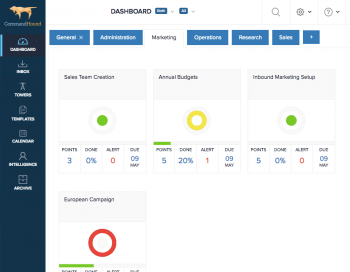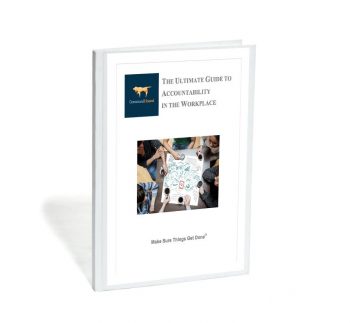As an HR professional, you know that successful employee onboarding is an essential part of any business strategy. It can improve retention rates and time-to-productivity for the organization.
It can make the difference between a happy and committed employee and one who feels no investment in the success of the business.
Insights: Human Resources
As a Human Resources professional, chances are you are drowning in the acronyms of workplace law and regulation. ADA, COBRA, DOL, ERISA, HIPAA, FLSA, NRLA, etc. — They can add up to a big HEADACHE.
Why do some employees seem always to get things done on time and as expected, while others struggle? Is it in their DNA? Is it an organizational culture that condones missed deadlines so that some people do not feel the pressure to perform as well? Are incentives, like bonuses, or penalties, like losing a job, accomplishing their objectives?
The annual performance review is an excruciating ritual that has been around for a really long time, but, in 2017, it’s just not cool anymore.
It is a 20th century model that just doesn’t work for the 21st century. Managers see them as time consuming and not always reflecting employees’ real contributions. Employees, especially millennials, can find them demeaning and unfair.
But how can we provide the feedback that is essential to an employee’s growth without a review? And how can management gather and organize information on employee performance to use in human resources decisions?
It has become the norm for businesses to incorporate a virtual workforce into their operations.
Whether a company has geographically dispersed offices, hires employees or freelancers in different cities or countries, or just offers local employees the flexibility to work from home, more and more of us are having to manage remote teams.
Results of a Gallup survey published earlier this year showed that 43 percent of employed Americans spent at least some time working remotely in 2016.
Why do some employees seem always to get things done on time and as expected, while others struggle? Is it in their DNA? Is it an organizational culture that condones missed deadlines so that some people do not feel the pressure to perform as well? Are incentives, like bonuses, or penalties, like losing a job, accomplishing their objectives?
The gig economy is here to stay. Intuit estimates that by 2020, as many as 40 percent of Americans will be contingent, contract, or “gig” workers. Gig workers can be freelancers, independent contractors, or any other outsourced employees who are hired on a per-project basis.
Some of these contingent workers choose to work outside of a payroll system either as full-time freelancers or as part-time workers who supplement their income by picking up gigs. Others take contingent jobs out of necessity even though they would prefer full-time employee status.
It has been proven that, if done right, gamification may increase engagement. What about taking these gaming concepts into the workplace to make accountability and the tracking of employee performance more fun?
The latest data out from the Bureau of Labor Statistics shows that the unemployment rate is at it’s lowest point since the recession and that the labor market is verging on full capacity.
While this is good news for the US economy, it means that you, as an employer, cannot afford to lose even one valuable employee. Turnover is expensive.
Why do most employees see training as a chore of little value? Why is it that training is so hard to make interesting and engaging? Why is knowledge retention so hard to achieve?







